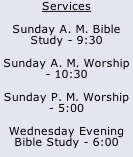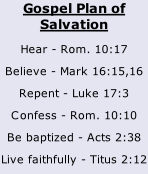








The Gospel is God's power unto salvation (Rom. 1:16), and we must preach it (II Tim. 4:2), and this must be done in love (Eph. 4:15). Likewise we must defend the truth and, when necessary, do that publicly (Jude 3; Phil. 1:16; Acts 18:28).
Paul As A Debater
Paul was multi-
Paul did two things in the synagogues of Damascus.
- He immediately preached Christ: "And straightway in the synagogues he proclaimed Jesus, that He is the Son of God" (Acts 9:20 ASV).
- He proved that Jesus was the Christ: "But Saul increased the more in strength, and confounded the Jews that dwelt at Damascus, proving that this is the Christ" (Acts 9:22 ASV).
Likewise, in Acts 17:1-
Paul went into the synagogues and challenged the doctors of the law and proved that Jesus was the Messiah. He challenged the Grecian philosophers and exposed their worldly wisdom.
The peerless apostle Paul was the matchless debater of his day. Other than Christ no man ever advanced Christianity more through public debate than Paul. He knew that truth was more powerful than error. Therefore any time his preaching brought a debate, he took advantage of it to advance Christianity. He powerfully preached the truth and refuted error. His purpose was that the lost might be saved and that he (Paul) might partake of the benefits (I Cor. 9:23). In the final analysis, the purpose of all that we do–our preaching, debating, and general conduct–must be to save ourselves and others (I Tim. 4:16).
Jesus the Great Debater
Our Lord was the best and only perfect debater who ever lived. It could be said of His debating as was said of Him following one of His miracles, "He hath done all things well." His quick analysis, perfect logic, His penetrating and powerful answers have never been equaled among men. The officers who were to arrest Him said "Never man spake like this man" (John 7:46). Even so, it is true that no man ever debated as this Man debated. This was because He was more than a man (Phil. 2:5-
One of the most accurate, precise, and informative statements relative to our Lord and controversy was made b y Alexander Campbell: "Hence he Prince of Peace never sheathed the sword of the Spirit while He lived. He drew it on the banks of the Jordan and threw the scabbard away."
Peter and John As Debaters
Peter and John earnestly contend for the faith (Acts 4,5). The church of their day was set for the defense of the truth. They were constantly challenged by the enemies of the cross. The brethren met the challenge. Never did they plead that they did not believe in contending for the faith.
Stephen As A Debater
In the sixth and seventh chapters of Acts, we learn that Stephen was courageously engaged in debate on the day of his death. His willingness to earnestly contend faith resulted in his death. Yet the Lord showed His intense interest and approval of Stephen's conduct by standing at the right hand of God as He beheld the proceedings (Acts 7:56).
Doubtless Stephen's request to the Lord to receive his spirit in death was granted (Acts 7:59.60). Let those who declare that a man cannot debate and have the right attitude explain, if that be the case, why Stephen, as he was finishing his last speech and they were pelting him with stones, prayed for his enemies! Who will charge that both Christ and Stephen were wrong?
Apollos As A Debater
Apollos, an Alexandrian by race, was an eloquent man and mighty in the scriptures. After Aquila and Priscilla "expounded unto him the way of God more accurately" Apollos became a powerful contender for the faith. Of him it is written, For he powerfully confuted the Jews, and that publicly, showing by the scriptures that Jesus was the Christ" (Acts 18:28 ASV).
Growth Of The Church And Debating
When brethren, generally, both believed in and practiced public debating, the church grew. This was true in the first century as well as in our times. Two of the greatest contributing factors to our lack of growth in recent years have been a decline of strong pulpit preaching and a general unwillingness to debate. One of the reasons many denominational preachers are saying and writing so many hard things bout the church of Christ today is that they think they will not be challenged to defend their error in the presence of an able opponent. Brethren, much of the tirade against the church will be slowed down or stopped when once again brethren are willing to do as Paul instructed Titus.
For there are many unruly and vain talkers and deceivers, specially they of the circumcision: Whose mouths must be stopped, who subvert whole houses, teaching things which they ought not, for filthy lucre's sake. One of themselves, even a prophet of their own, said, The Cretians are alway liars, evil beasts, slow bellies. This witness is true. Wherefore rebuke them sharply, that they may be sound in the faith (Titus 1:10-
It is my confirmed judgment that no issue that has troubled the church has been stopped until it has been debated. This was true in the first century as it is in ours.
And certain men came down from Judaea and taught the brethren, saying, Except ye be circumcised after the custom of Moses, ye cannot be saved. And when Paul and Barnabas had no small dissension and questioning with them, the brethren appointed that Paul and Barnabas, and certain other of them, should go up to Jerusalem unto the apostles and elders about this question (Acts 15:1,2 ASV).
And that because of the false brethren privily brought in, who came in privily to spy out our liberty which we have in Christ Jesus, that they might bring us into bondage: to whom we gave place in the way of subjection, no, not for an hour; that the truth of the gospel might continue with you (Galatians 2:4-
The church–and even the world–is deeply indebted to those faithful and able brethren who have been (and are) willing to defend the Bible and the church from all types of false teaching both within and without.
Garland Elkins, Adapted from The Tabernacle Sermons Today, The Life and Times of N. B. Hardeman, Part Two


